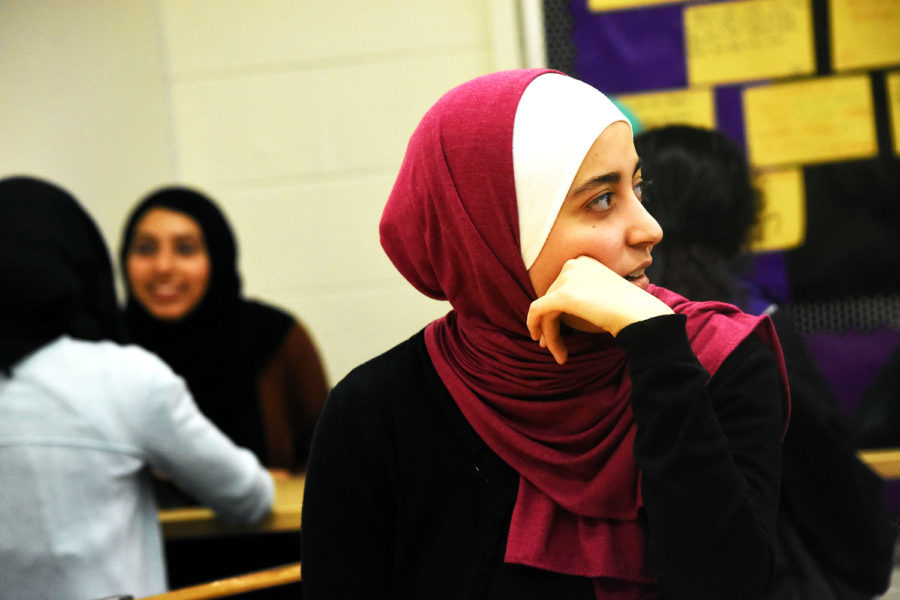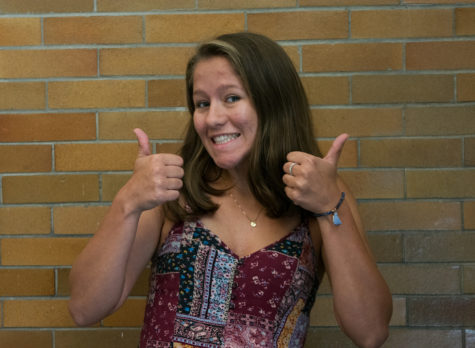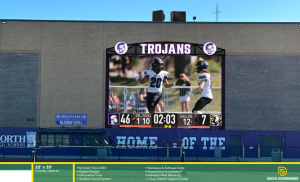Religious club policy raises questions
October 10, 2017
The peanut oil aroma of Chick-Fil-A and a prayer huddle greet junior Mia Marconi as she enters room 157. Fellowship of Christian Athletes (FCA) club creates a stress-free environment for Marconi and allows her to be with people who share her faith.
The goal of the three year old club, according to DGN’s website, “is to see the school and community impacted for Jesus through the influence of coaches and athletes.” The group meets every week and has about 30 members.
“It just makes me feel more comfortable at school because I can talk about how my life has changed so much because of my religion and because of my faith. It really helps me connect with other people and rely on those who agree with me and believe the same things,” Marconi said.
Marconi was active in the two-year process of transitioning from an emerging club to an established club. Former student activities director, Kelly Zuerner, told FCA last year that they were not allowed to be in the activities fair due to their unestablished status. This year they were allowed to attend.
Announcement policy changed
An Omega article published in 2002 regarding a creation club, states that the club was not allowed to publicize or have teacher leadership due to its religious roots. The club discussed the belief of creation versus evolution. The meetings were open to anyone and included an optional prayer session at the beginning.
An Omega article published when Muslim Student Association (MSA) first started in 2013 notes that the group could not have a paid adult sponsor or advertise in announcements due to its religious nature.
However, Zuerner stated that it is not FCA’s religious nature that prohibited them from publicizing their meetings over the announcements last year.
Current student activities director, Mark Mirandola, allows them to utilize the announcements this year. FCA’s announcements have promoted “learning more about Christianity or wanting to invest more into your faith.”
In a Supreme Court case in 1990 (Board of Education vs. Mergen) it was decided that public schools are not allowed to prohibit a club based on worries that it would seem they are endorsing the clubs’ beliefs.
Additionally, the Equal Access Act 20 U.S.C. § 4071 (1984) states that if a school allows a privilege to one non-curricular club, they must allow an equal privilege to all other clubs regardless of their content. The act covers privleges such as posting on bulletin boards and making announcements. Allowing FCA to promote the club over the announcements is in accordance with this act.
Religious stipend under review
For the first time this year, sponsors Michael Pacer and Kim Jaros received a stipend, a small amount of money, for the sponsorship of FCA. Like other club sponsors, they have received ⅙ of their stipend. However, the stipend is now under legal review by the district’s legal team, according to district human resources employee Wendi Andree.
The stipend question was brought to the district’s legal team on Sept. 28 and the district hopes to have a resolution shortly. Currently, Jaros is scheduled to receive a total of $650.50 and Pacer would earn $383, coming out to $1,033.50 total to fund FCA for the year if approved by the legal department.
According to the federal Equal Access Act, schools are not authorized to use public funds in any way to fund religious clubs, besides offering the building space to meet in. Because stipends use taxpayer money, the act does not allow stipends to be given to religious clubs. Sponsorship is not allowed for religious clubs and the adult supervisor must be non-participatory.
MSA hopes to gain official status
As senior Anam Adil listens to an FCA announcement, she thinks about the club, Muslim Student Association (MSA). Twelve students attended their first meeting this year, but she wonders whether announcements could bring in more.
“In the same way that FCA strives to promote awareness about the religion to create a comfortable environment for those who have the same faith or those who want to seek knowledge about the faith, MSA would like to do the same. Just a different religion, of course. I think this can be essential to public schools because this way you’re aware of multiple perspectives,” Adil said.
Adil started attending MSA her freshman year. In previous years, the association was not an official club, but they hope to gain that status soon.
This year, Mirandola is working with the D99 teacher’s union and other administrators to write new guidelines regarding standards to become a club and the privileges a club has. He is not sure what these changes will encompass yet.
Going forward, MSA is planning to talk to Mirandola about ways to publicize the club to attract more members.
“The announcements are probably the most convenient method of knowing about clubs. Being in the announcements would let people know that there is a club like this that exists at DGN, and you’re more than welcome to come if you’d like. For example, I didn’t even know that FCA has also been trying to gain recognition. The first time I heard about the club was through the announcements this year,” Adil said.


























